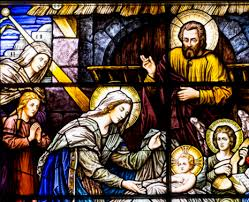 Human ecology reminds us that the reality we live in is shared. It happens when organizing a celebration or potluck with friends or family, that the question is, what do you bring? And what each one brings, contributes to the joy and success of the party. If you bring your best, everyone rejoices. If you skimp with quality or quantity, it affects us all. Even the one who is humble and shares what little he has, increases joy and friendship.
Human ecology reminds us that the reality we live in is shared. It happens when organizing a celebration or potluck with friends or family, that the question is, what do you bring? And what each one brings, contributes to the joy and success of the party. If you bring your best, everyone rejoices. If you skimp with quality or quantity, it affects us all. Even the one who is humble and shares what little he has, increases joy and friendship.
The common space in society is made of what each one puts. With honest work, ingenuity, enthusiasm, and goodwill, you build. Courtesy, cheerfulness, the ease to apologize and forgive and the eagerness to help others make life more pleasant and difficulties bearable. On the contrary, arrogance, carelessness, the desire to take advantage of everything, even at the expense of others, filth and bad habits, discourage trusting others and collaborating in building common space.
In the economy and its social impact, capitalism and the market help to generate wealth and optimize the use of resources, but it is only part of the social dimension and it is naive to believe that it solves all problems. Every human act is moral and therefore the market also lends itself to abuse, corruption and distortion of human freedom. The trickle down tale – that as wealth grows, everyone benefits – is a cruel mockery and an excuse to calm the conscience of some. We cannot ignore each other and those who have more, be it materially, politically or culturally, have to put more on the common table.
I take this first column of 2014 to explain what I contribute. I am a Catholic and I take it seriously, and therefore I believe that God is the source of all the love and good that society and every man need, and I look for ways to share it. I also try to respond to the invitation to love my neighbor as the Lord Jesus loved us. This does not alienate me from the earthly in the hope of paradise, but rather leads me to commit myself to cooperate with all men of good will in transforming our society so that good and justice are available to all and that the life of all is more humane and dignified. And since love is also respect, I do not impose my faith or my ideas on anyone, but rather I seek to propose them in a language that does not alienate but rather builds dialogue and thereby helps to build a better Peru.
This article was originally published on El Comercio on January 7, 2014

